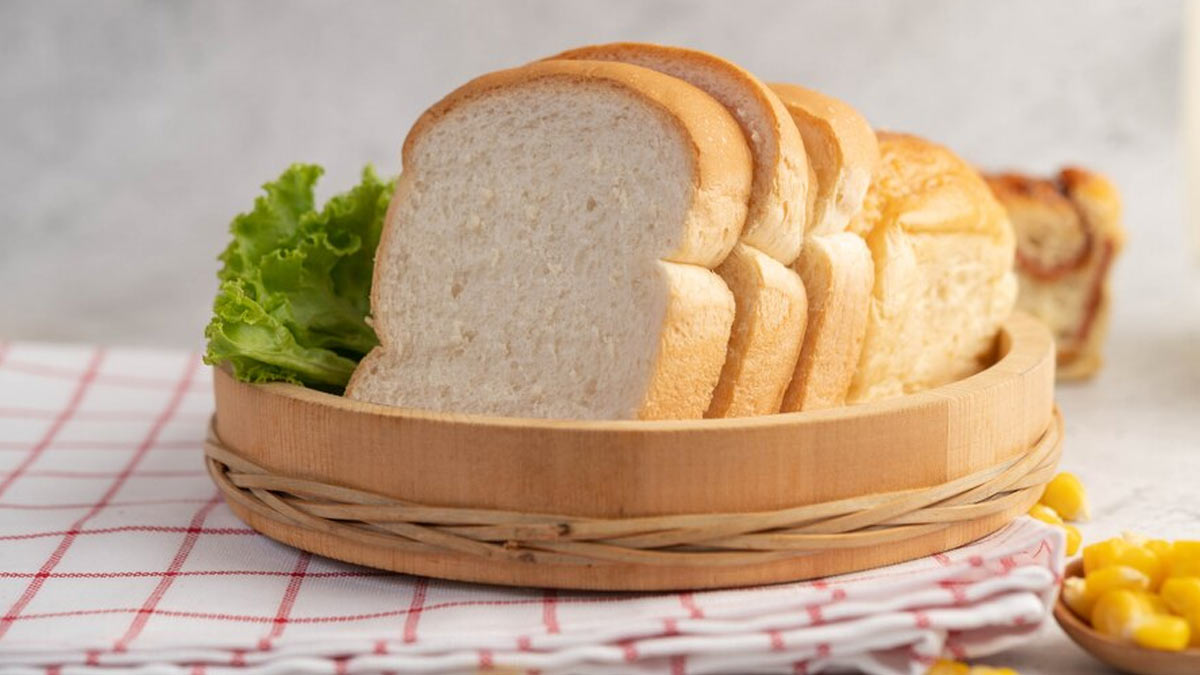
Bloating is a common digestive issue, and many people experience this condition after eating bread. While giving up bread may help alleviate bloating for some individuals, depending on the underlying causes. Abdominal bloating, which is an uncomfortable, full feeling in the gut area, can be concerning, especially if painful. The abdomen may appear larger than usual or be formed incorrectly. Persons may also experience searing stomach discomfort. However, in most cases, the reason is simply indigestion or gas buildup in the stomach and bowel. Here’s what experts say about why this might be the case:
Table of Content:-
1. Gluten Sensitivity
“Bread, especially varieties made from wheat, barley, and rye, contains gluten, a protein that some people struggle to digest. Those with gluten sensitivity or celiac disease may experience bloating, gas, and other gastrointestinal discomforts after consuming gluten-containing products. For these individuals, giving up bread can significantly reduce bloating,” said Dr Rajiv Chaudhary, MBBS, MD, VMMC, New Delhi.

Also read: Here’s Why You Feel Tired After Eating Bread
2. Irritable Bowel Syndrome (IBS)
According to Dr Chaudhary, people with IBS may find that bread exacerbates their symptoms, including bloating. This is particularly true for breads that are high in FODMAPs (Fermentable Oligo-, Di-, Mono-saccharides And Polyols), which are short-chain carbohydrates that some people find difficult to digest. Many common bread ingredients, such as wheat, are high in FODMAPs.
3. Yeast Sensitivities
“Some people may have sensitivities to yeast, which is used in many bread-making processes. Yeast can cause fermentation in the gastrointestinal tract, leading to gas production and bloating,” said Dr Chaudhary.
4. Refined Carbohydrates
“Bread, particularly those made from refined white flour, can cause blood sugar spikes and quick digestion, which may contribute to bloating. These types of bread lack fibre, which helps slow digestion and maintain a healthy gut microbiome,” Dr Chaudhary said.

Also read: Black Wheat Flour Bread: Health Benefits Of Black Seed Barley Roti
5. Dietary Fibre
While some breads can cause bloating due to low fibre content or problematic ingredients, others, like those made with whole grains and seeds, can actually help promote digestive health and reduce bloating.
It's essential to differentiate between the types of bread and their respective fibre contents when considering their effects on bloating.
Alternatives and Solutions
If you suspect bread is causing bloating, you might consider several strategies:
- Elimination Diet: Temporarily remove bread from your diet to see if symptoms improve. If bloating reduces, reintroduce bread slowly to determine if it is indeed the cause.
- Switch Bread Types: Try breads made from alternative flours that do not contain gluten, such as almond, oat, or buckwheat flour. Also, look for breads labelled as low FODMAP.
- Improve Overall Diet: Incorporating a balanced diet rich in fibre, fruits, vegetables, and whole grains can improve gut health and reduce symptoms of bloating.
- Consult a Doctor: If bloating persists, it may be useful to consult with a doctor or a dietitian who can provide tailored advice and rule out other potential causes.
Giving up bread may help some people avoid bloating, especially those who have gluten, IBS, or yeast sensitivity. However, the effect of bread on bloating varies greatly from person to person, so it's critical to consider personal dietary tolerances and general dietary patterns while dealing with digestive health issues.
Also watch this video
How we keep this article up to date:
We work with experts and keep a close eye on the latest in health and wellness. Whenever there is a new research or helpful information, we update our articles with accurate and useful advice.
Current Version